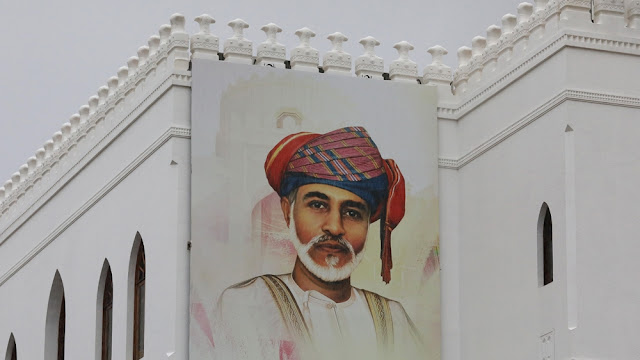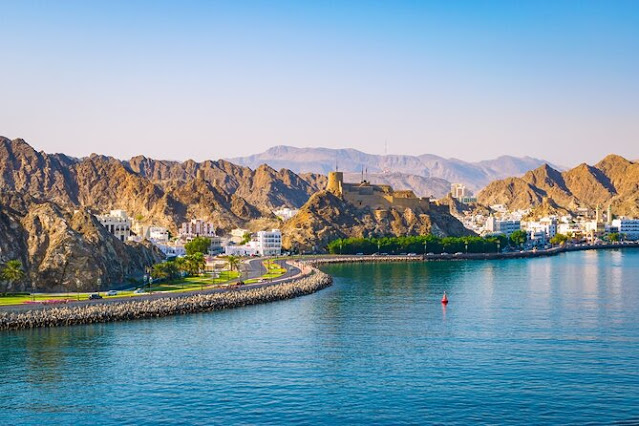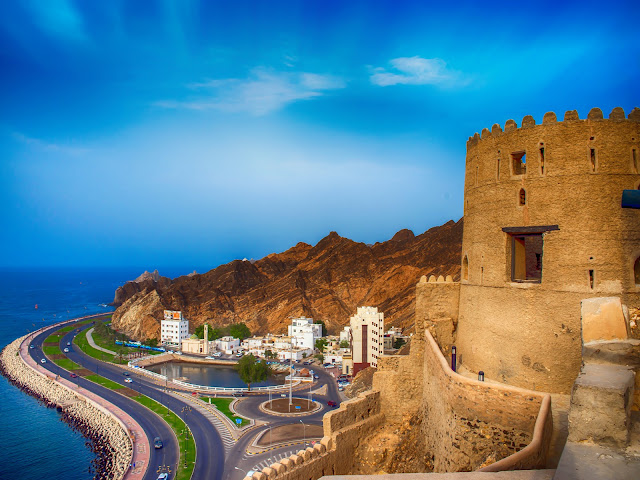What is extraordinary in Sultan Qaboos' foreign policy
choices is the priority search for regional stability
In the chaos of the past two weeks in several countries that
have once again illustrated fundamental differences on universal values, a man
of peace celebrated 45 years in office, reigning with his actions and proving
that the man was not condemned.
Sultan Qaboos of Oman
celebrated this rare milestone.
What the Oman leader achieved after coming to power in 1970
is truly remarkable. His due diligence and the hard work of his subjects
transformed the sultanate from stagnation into a modernizing society. It wasn't
easy, of course, and it wasn't free either.
Yet many wonder if these feats will outlive the monarch.
Beyond the difficult circumstances that brought him to
power, Sultan Qaboos took on the weight of power to help transform his visions
of stability and prosperity, which required an educated society. Like leaders
placed in the same position, he has addressed the concrete needs of the nation
to better exploit an expensive human resource potential, while claiming to be
responsible. Certainly the Sultanate has faced unequivocal challenges and since
the sovereign has introduced one novelty after another, perhaps crowned by the
Basic Law of 1996 which laid the foundations for a constitution for the country
and, above all, created an independent judiciary, it is not never been easy.
There were many socio-political and economic obstacles to overcome. But the
trend so far has been quite positive. When Sultanate residents marched in early
2011 to protest government unemployment and corruption, Qaboos was quick to
admit responsibility for the shortcomings. Indeed, his response to the riots in
Oman calmed the protesters and brought stability to the country.
Critics blew up the system because, presumably, Omani
intellectuals did not dare to speak. “When we speak seriously”, says one
observer, “they run away because they are afraid, but also because they are
ashamed”.
"They fought for the revolution," he continued
this assessment, when "they had strong ideas but now they are totally
dependent on their position. They know they are trapped. Apparently, the Omani
interlocutor who revealed this idea further confessed: "How can we talk
about democracy here? There is no press, there is no journalist, people believe
that universal suffrage Majlis Al Shura means democracy, but this is not true
... However, this situation is good for everyone because Americans know very
well that if we have democracy in Oman, the Islamists will win and the new
policy will be hostile to them.
This was, of course, a classic interpretation of what passed
for anecdotal evidence, especially when it came to astute Americans and
Westerners in general, and who apparently ruled the entire planet. Regardless
of these gratuitous inferences, however, a realist as he is, Sultan Qaboos, is
almost always aware that the sultanate is endowed with limited resources of oil
and natural gas, which means that the cradle-at-the-tomb welfare phenomenon
practiced elsewhere. in the Arab peninsula territory it will not and cannot
apply to Oman. His repeated efforts to move from an oil-based economy to a
natural gas economy and ultimately a gas-free economy mean that the leader
expects Oman to make alternative economic choices. In an open capitalist
system, unfortunately, large landowners or individuals willing to take
investment risks practiced what amounted to corrupt behavior, often relying on
cheap foreign labor rather than hiring more expensive premises. Some have
indulged in nepotism, while others have gained privileges granted by a
government eager to encourage entrepreneurship. Even when Muscat imposed its
Omanization policy, which forced private companies to hire locals, opponents
ignored social stabilization features for immediate monetary gains.
Despite the obscurity, however, the Sultanate managed to protect itself from internal and regional clashes, establish long-term security alliances with nearby and international allies, embark on a diversification program to encourage the private sector, and rely on itself to take on. Nation-building responsibilities, The Sultan has never claimed to be the distinctive identity of the country he rules and, on the contrary, his policies have allowed Oman to thrive and thrive without oil. It can therefore be said with confidence that, above all, his willingness to accustom the population to prepare for the day when the Omanis will have to rely on their inherent skills, not on oil, will make the job of his successor easier.
Equally important, the sultan stood out among his peers for
decisive military choices within the Gulf Cooperation Council, even as he
actively sought to limit tensions with Iraq and Iran. Neither overly optimistic
nor overly pessimistic, what is remarkable in his foreign policy choices is the
primal quest for regional stability. Bowing to fanatics has never been part of
Oman's character, although Muscat has opted for temporary pragmatism to meet
the Iranian challenge. On the contrary, Sultan Qaboos sought peace instead of
war, aware that the latter rarely promotes general well-being. What he has
always aimed at is relevance, not adventurism, to create appropriate bonds with
all neighbors, friends and foes alike.
This pursuit of peace is, for some, a sign of naivety that he chooses to ignore the excess. But the Oman monarch is wise enough. He knows that fear can only be overcome through determination and skill, and while his will to power is intact, he also appreciates that strength cannot and should not be limited to military might alone. A surprising lesson from a soldier-ruler.
Pinkstone Travel's is a leading tour and travel agency in Muscat, Oman. We offer best deals on holiday packages. Get customized travel packages at affordable price. For more information - Travel Agency in Oman




No comments:
Post a Comment